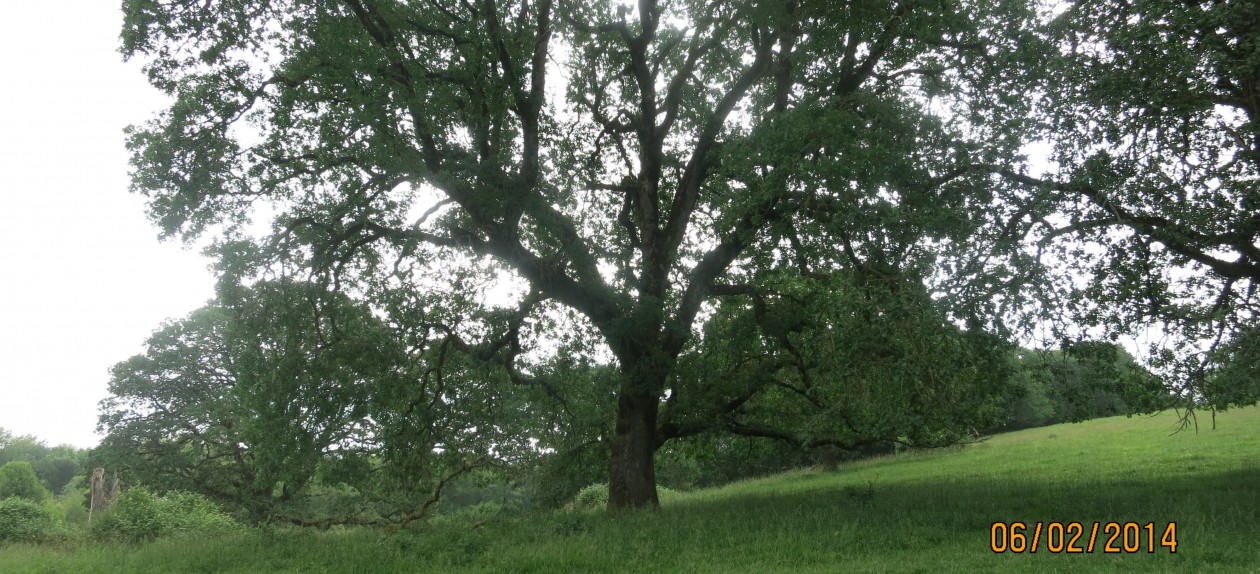Right. It’s not all about Corvallis. We spent the weekend at the condo in metropolitan Portland doing some urban farming. Despite the best efforts of Susan Suzuki, our realtor, the condo has not sold. (Albeit having come close.) The plants on the “terrace,” meanwhile, have been growing their little potted hearts out. And when, due to an unfortunate lapse in communication on our part, the plants went without water since the last rain storm, we have:
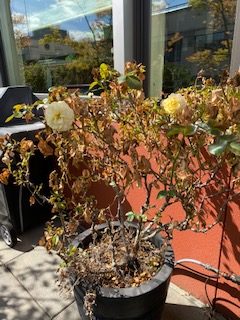
On Thursday of last week, Larry had turned on the irrigation system, checked all the connections, and left with hope that the remaining, alive, plants could recover. And many of them did. But. We couldn’t “show” the condo looking like a somewhat desiccated jungle. Bad enough trying to sell a property in Portland, these days. Boarded shops, on-street camping, riots, national attention to “failed governance?”
So, up to Portland for a weekend of thinning, raking, clipping, and simple removal of the most afflicted pots. Here’s what that looked like:
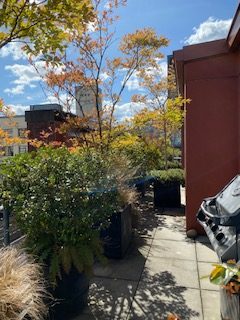
BEFORE:
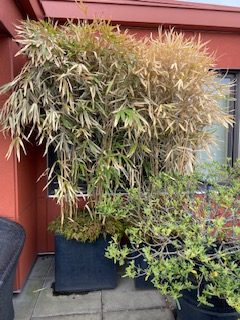
AFTER:
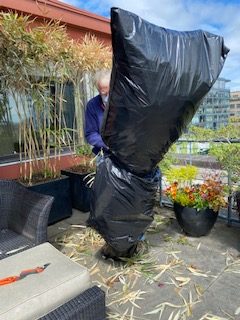
Here’s Kate, our amazing, talented, awesome (pick your adjective) gardener, who planted this garden 10 years ago and has taken care of it ever since. Up until we failed to tell her that the purchasers of the condo had taken a hike, and she supposed she was no longer needed at the Crane Building.
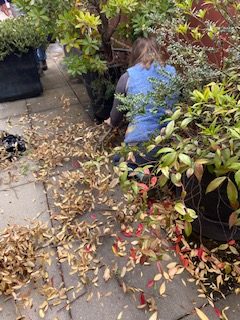
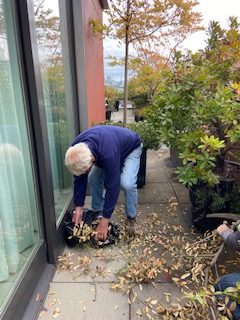
Meanwhile, back at the farm, a companion photo:
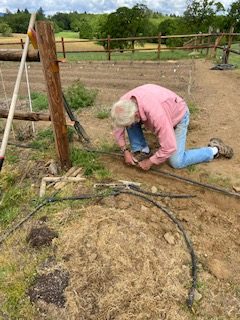
Work, work work!
The cows have been taken away altogether, and their pastures sprayed. The plan is to kill off the remaining invasive grasses, thistle, and tansy. We’ll let the field lie fallow, then in the fall, disc and harrow, and finally plant native, perennial fescue. Here’s the retro-looking machine that did the spraying:
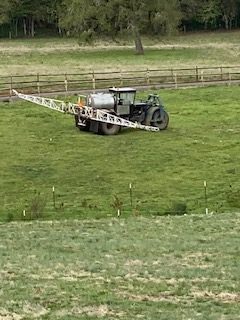
The nice green field has already begun to turn gold (euphemistically) and gives the landscape an early, autumnal feeling:
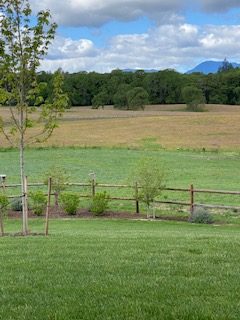
Our neighbors seemed to disapprove of this program, but were mollified, I think, to learn that it’s a Fish & Wildlife plan, not a Viehl plan. And don’t worry, the cows will be back, in the lower pastures when Ryan obtains the solar pump to capture water from Muddy Creek.
Jerod Jebousek, director of the Corvallis edition of Fish & Wildlife came by last week to walk through the 13 acres around the house under their direct management. (This means they plan as well as pay for whatever happens there, but they do not own the property.) He determined that there was abundant camas growing here, but as first year plants, will probably not bloom this spring.
Plus many hundreds of white oak saplings. This is hopeful news, trees perhaps to succeed the fallen giants of this past year. (No, of course not in our lifetimes!) He would like to have us scan the area and identify 100 baby trees to protect with either flags or small wire mesh tubes. Whoa. We don’t know where we might find these small wire tubes, but guess that the cows might simply crush them inadvertently if they didn’t knock them over when dining on the fresh green leaves. Small flags would warn the teams of sprayers who will be coming to address the blackberry vines in the area, but would hardly deter the cows. He, Jerod, wants to have the cows in a timely manner because they eat down the weeds before they are able to develop seed heads. So where does that leave us?
Guess Jerod will have to answer that question. Along with privilege comes responsibility. Right?
In closing today I’m posting a photo of the abundant bloom on our little crabapple tree in front of the house. Allen’s bees are drunk in love with these blossoms and you could probably hear the hum all the way up in Portland if you tried:
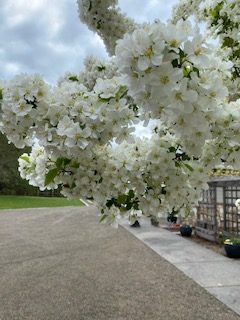
Happy spring, don’t forget to eat outside, as inside dining has been banned. And remember your mom next Sunday!
